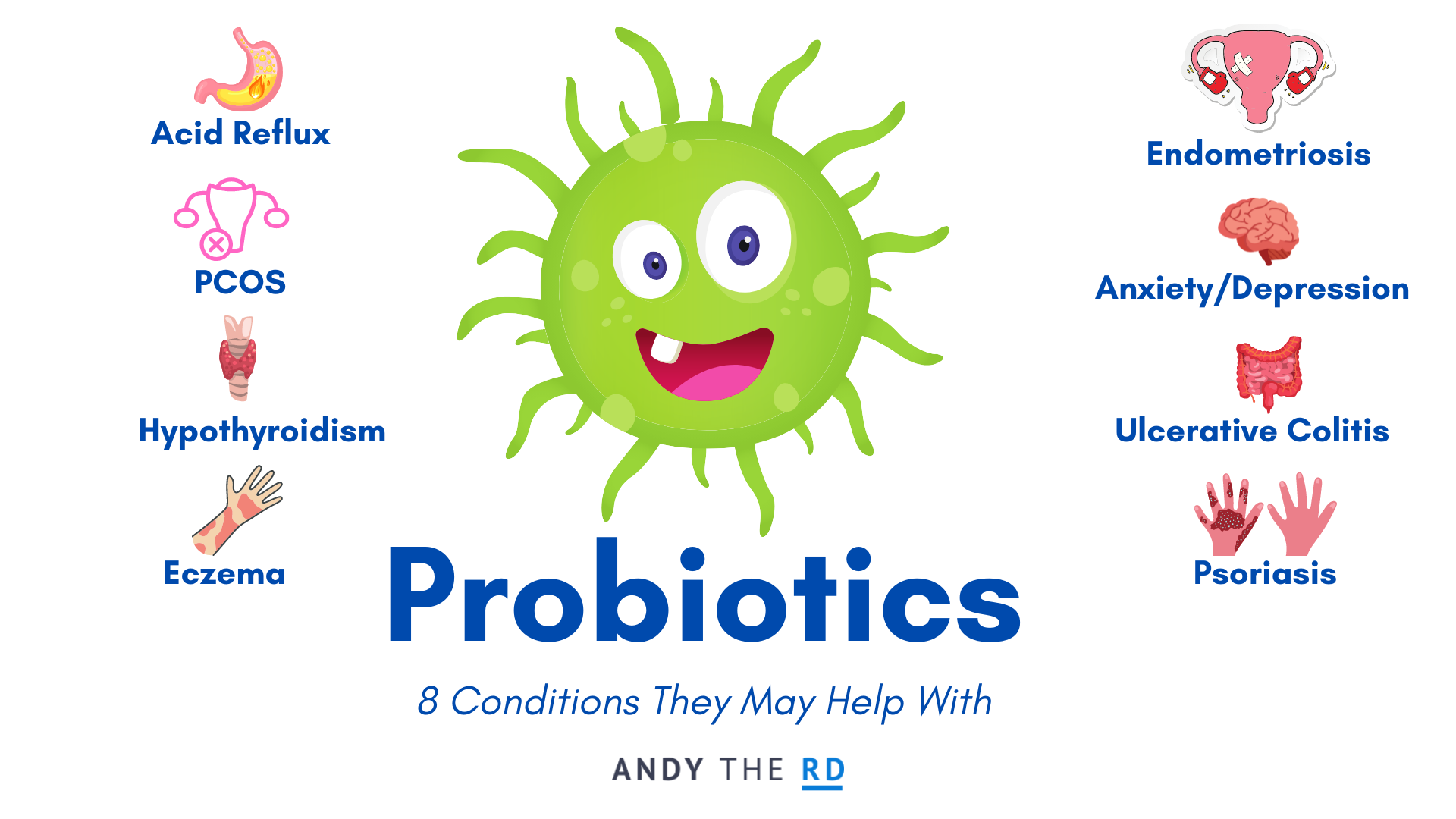If you’re a regular reader of my blogs you may feeling a bit like every single health condition out there has some connection with your gut health.
I mean, it kind of does!
Dysbiosis of the human digestive tract, essentially an imbalance between “good” and “bad” bacteria, has been increasingly recognized to be a driver or at least notable factor in the progression and severity of a variety of common health conditions.
As a result, an increasing amount of attention has been paid to the utilization of probiotic supplements as one of a number of strategies to improve health outcomes in such conditions.
Please be aware that probiotics vary widely based on colony numbers, species and strains and so the “optimal” selection will depend on these and other factors.
With that said, the goal of today’s article is to more broadly identify common conditions for which probiotic supplementation has yielded some level of meaningful positive results.
Let’s take a closer look.
Acid Reflux
Although the quality and quantity of data is still lacking, a 2020 systematic review out of Nutrients has identified some limited evidence that probiotic use could reduce episodes of heart burn and regurgitation in GERD sufferers.
Anxiety & Depression
A 2020 meta-analysis out of the Frontiers Of Neurology identified that probiotic supplementation may have a complimentary role to play in lessening relevant symptoms in both anxiety and depression.
Eczema
A 2016 evidence review published in the Dermatology Practical & Conceptual Journal had the following to say about probiotic use in eczema sufferers;
“[P]romising results have been noted from the use of probiotics and prebiotics taken in combination. Given significant differences in study design to date, however, further studies would be needed to clarify dose and strains of probiotics.”
Endometriosis
A 2019 study out of the International Journal Of Fertility & Sterility found that a lactobacillus-based probiotic demonstrated some potential over 8 weeks of use to reduce pelvic pain and dysmenorrhea [severe period pain].
Hypothyroidism
A 2019 study out if Complimentary Therapies In Medicine determined that a combination of probiotic + prebiotics (fibre) supplementation (known as a synbiotic) reduced fatigue, TSH levels and medication dosage requirements in those living with hypothyroidism as compared to placebo after an 8-week period.
Psoriasis
A 2019 randomized controlled trial involving psoriasis sufferers demonstrated that probiotic supplementation over a 12-week period reduced the severity and area of impact of the subjects psoriasis.
Ulcerative Colitis
A 2018 systematic review and meta-analysis out of the Journal Of Cellular Physiology found evidence to suggest that various probiotics and combinations there of ( Saccharomyces boulardii, Lactobacillus, and VSL#3 probiotics) may offer benefits to UC patients in remission.
PCOS
A pair of meta-analysis conducted over the last few years ( 1, 2) have offered up some preliminary evidence suggesting that probiotic supplementation may modestly improve some relevant markers in PCOS ( such as insulin resistance, inflammation and certain hormone levels).
Most Studied Strains?
According to a global analysis of 1,000 probiotic intervention studies Lactobacillus rhamnosus GG (LGG) and Bifidobacterium animalis ssp. lactis BB12 are the two most frequently utilized strains in an experimental setting.
Probiotics For Vulnerable Populations – Please Read
The goal of today’s study was not to recommend using probiotics for specific conditions, but rather to simply identify some of the conditions for which they have been studied as alternative management strategies.
It’s best to consult your healthcare provider to determine which, if any, probiotic supplement may make sense for you.
Consult a health care practitioner prior to use if you are pregnant or breastfeeding, if you have fever, vomiting, bloody diarrhea, or severe abdominal pain. Do not use if you have an immune compromised condition (e.g. AIDS, lymphoma, patients undergoing long-term corticosteroid treatment). If symptoms of digestive upset (e.g. diarrhea) occur, worsen, or persist beyond three days, discontinue use and consult a health care practitioner. This product contains lactose, dextrin, and potato starch, do not use if you have such allergies.
Until next time,
Andy De Santis RD MPH



